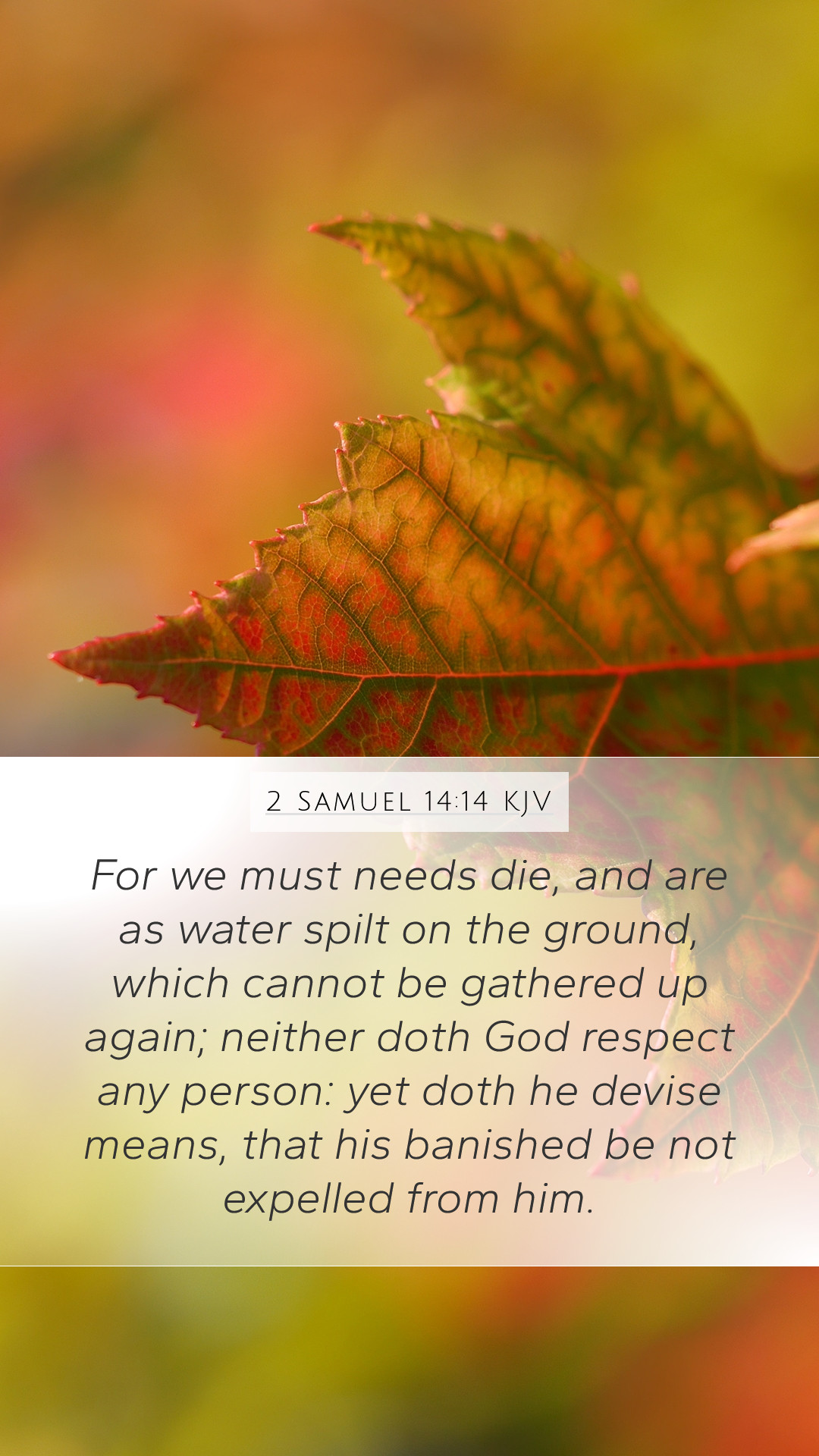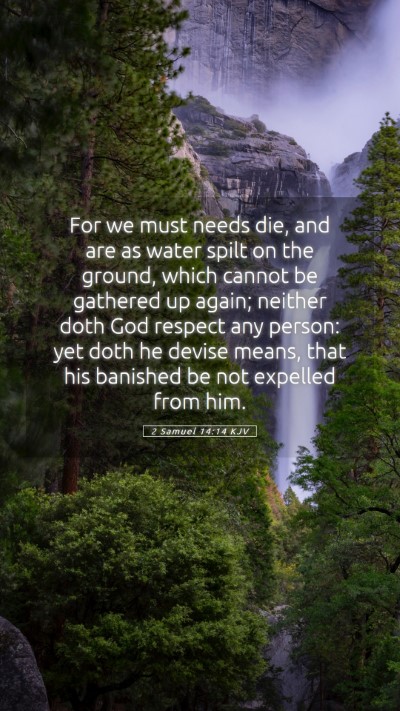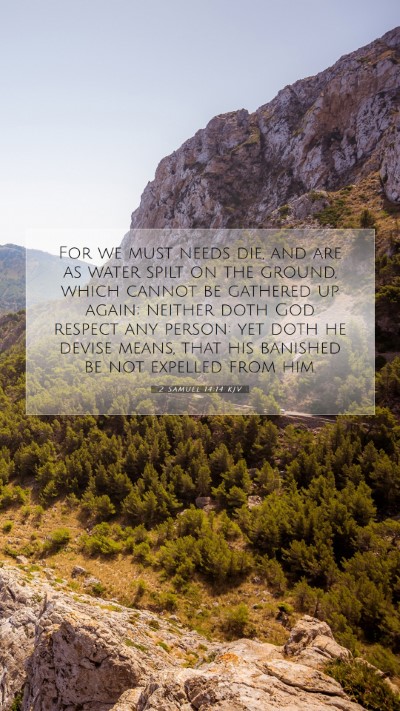Understanding 2 Samuel 14:14 - A Comprehensive Bible Verse Commentary
Verse: 2 Samuel 14:14 – "For we must needs die, and are as water spilt on the ground, which cannot be gathered up again; neither doth God respect any person: yet doth he devise means that his banished be not expelled from him."
Overview of the Verse
This verse presents a profound reflection on the inevitability of death and the need for reconciliation. It emphasizes God’s grace and desire for restoration, despite our human conditions.
Contextual Background
2 Samuel 14 narrates the story of Absalom's estrangement from David after he killed his brother Amnon. The verse is part of a discourse by the wise woman from Tekoa, who illustrates the fragility of human life and the importance of divine mercy.
Commentary Insights
- Matthew Henry's Commentary:
Henry emphasizes the transitory nature of life, comparing it to water spilled on the ground—once lost, it cannot be retrieved. This metaphor highlights the importance of making peace while there is still time. The reference to God's impartiality illustrates that divine love extends to all, regardless of their past sins.
- Albert Barnes' Notes:
Barnes notes that this verse is a persuasive argument for reconciliation. He elaborates on the human condition, asserting that mortality serves as a catalyst for seeking restored relationships. God desires to bring back those who have estranged themselves, showcasing His love and mercy.
- Adam Clarke's Commentary:
Clarke discusses the depth of the metaphor regarding spilled water. He explains that once life has been lost, it is irreversible, thus underlining the urgency of dealing with estrangements. Clarke also mentions God's providential care, which devises ways for restoration of the banished, pointing towards the idea of divine intervention in human matters.
Key Themes and Lessons
- The Inevitability of Death:
Life is fleeting and temporal, reminding us to prioritize relationships and reconciliation.
- God’s Unconditional Love:
Regardless of one’s past, God seeks to bring the estranged back into fellowship with Himself.
- The Importance of Reconciliation:
Before it is too late, individuals should pursue peace and restoration in their relationships, mirroring God’s intent to bring back the outcast.
Application of the Verse
This verse can guide one’s personal life in numerous ways:
- Understanding the significance of every moment and the necessity of being proactive in relationships.
- Seeking forgiveness and extending grace to others, reflecting God’s mercy.
- Encouraging those in broken relationships to reconcile before time runs out.
Related Bible Cross References
- Ecclesiastes 3:2 - "A time to be born, and a time to die;"
- Luke 19:10 - "For the Son of man is come to seek and to save that which was lost."
- Isaiah 55:7 - "Let the wicked forsake his way, and the unrighteous man his thoughts: and let him return unto the Lord."
Conclusion
2 Samuel 14:14 encapsulates essential truths about life, God's nature, and the importance of reconciliation. By understanding the deeper meanings of Bible verses like this, individuals can gain valuable insights for their spiritual journey and daily interactions.
Further Study and Reflection
Those interested in delving deeper into the meaningful insights from scripture can explore:
- Online Bible study resources that focus on similar themes.
- Bible study groups that facilitate discussions on reconciliation and forgiveness.
- Bible study plans aimed at exploring Old Testament narratives.


